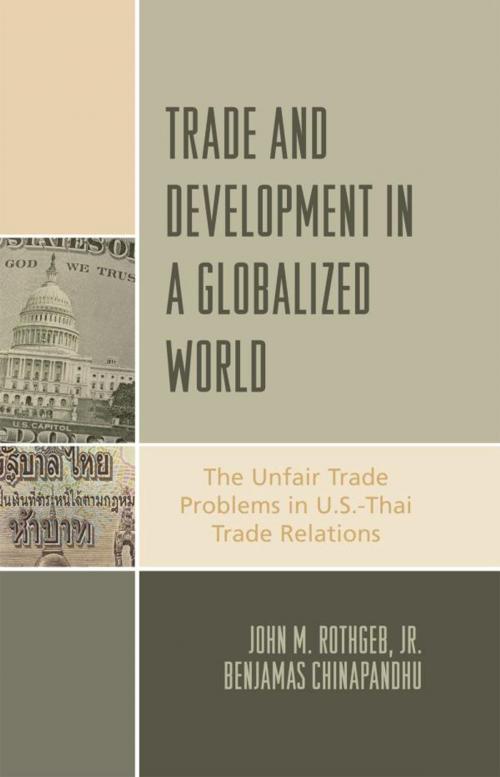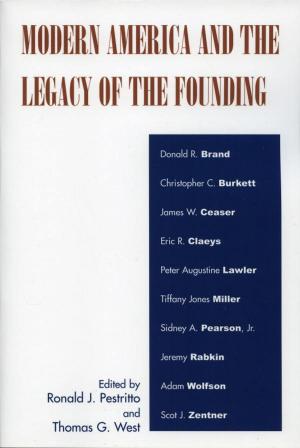Trade and Development in a Globalized World
The Unfair Trade Problem in U.S.DThai Trade Relations
Nonfiction, Social & Cultural Studies, Political Science, International, International Relations| Author: | John M. Rothgeb Jr., Benjamas Chinapandhu | ISBN: | 9780739161883 |
| Publisher: | Lexington Books | Publication: | November 27, 2006 |
| Imprint: | Lexington Books | Language: | English |
| Author: | John M. Rothgeb Jr., Benjamas Chinapandhu |
| ISBN: | 9780739161883 |
| Publisher: | Lexington Books |
| Publication: | November 27, 2006 |
| Imprint: | Lexington Books |
| Language: | English |
Trade and Development in a Globalized World examines how the unfair trade regulations of advanced countries affect developing societies. The most prominent of these regulations are those pertaining to dumping and subsidies. As antidumping and antisubsidy laws have proliferated, they have increasingly undermined the trade-related development strategies of poor countries. To determine how developing states attempt to cope with the problems created by unfair trade rules, Rothgeb and Chinapandhu conducted a case study of the ThaiDU.S. trade relationship. The results, revealed here, show that unfair trade regulations have evolved substantially from their origins as devices for ensuring that international markets can not be manipulated to confer advantages upon selected exporters and that these regulations now serve as the primary protective mechanisms for guaranteeing that advanced country producers will not face competition from developing country industries.
Trade and Development in a Globalized World examines how the unfair trade regulations of advanced countries affect developing societies. The most prominent of these regulations are those pertaining to dumping and subsidies. As antidumping and antisubsidy laws have proliferated, they have increasingly undermined the trade-related development strategies of poor countries. To determine how developing states attempt to cope with the problems created by unfair trade rules, Rothgeb and Chinapandhu conducted a case study of the ThaiDU.S. trade relationship. The results, revealed here, show that unfair trade regulations have evolved substantially from their origins as devices for ensuring that international markets can not be manipulated to confer advantages upon selected exporters and that these regulations now serve as the primary protective mechanisms for guaranteeing that advanced country producers will not face competition from developing country industries.















